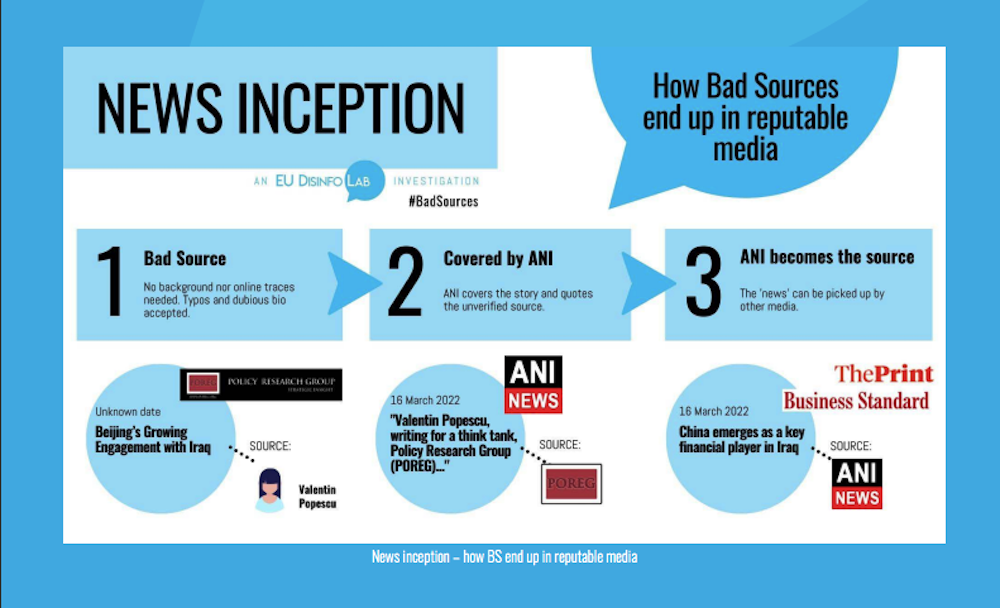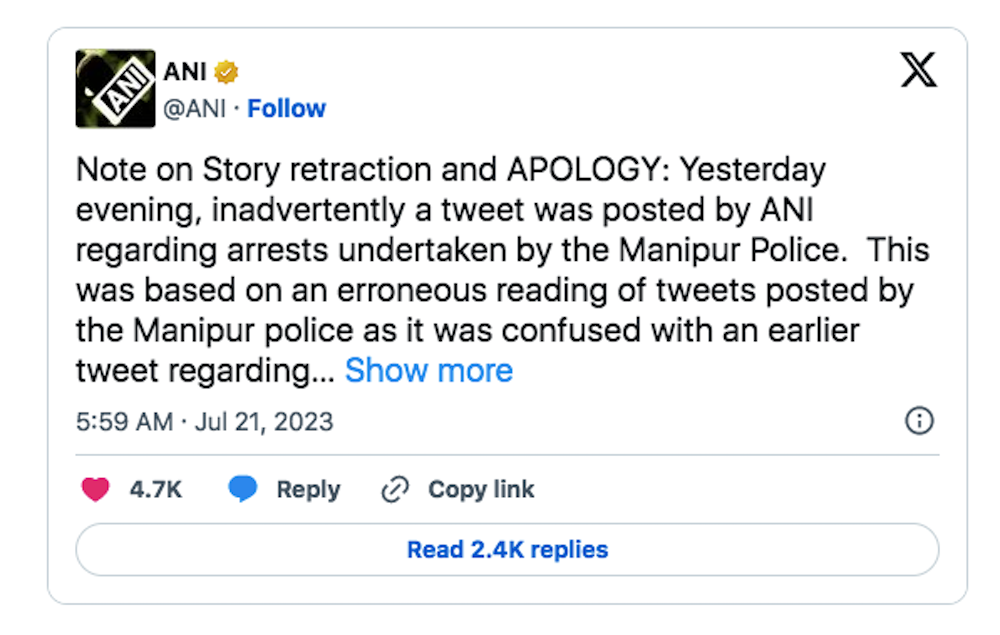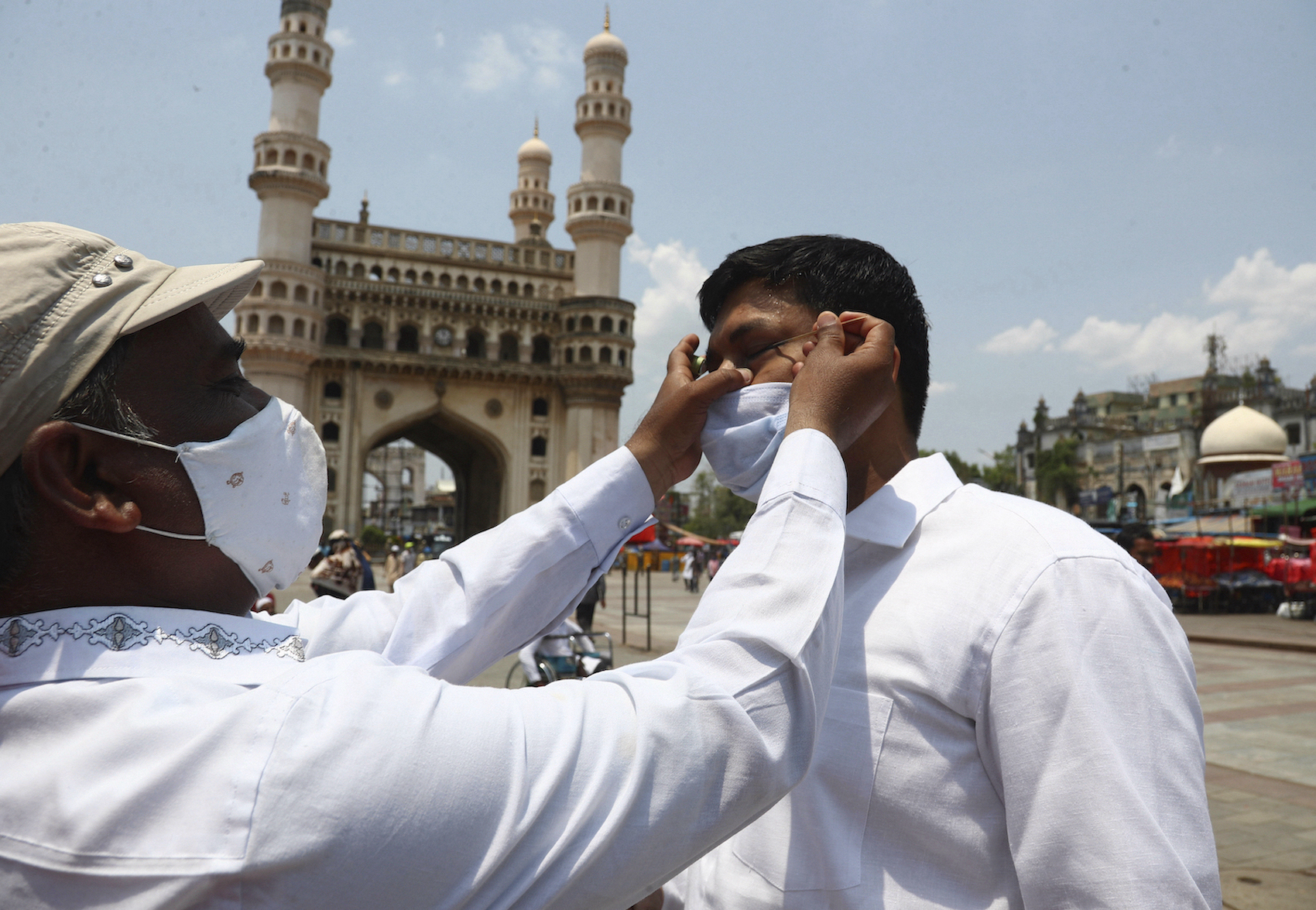ANI, the world’s largest source of Indian news, receives funding from Thomson-Reuters, despite widespread condemnation for its misinformation about Muslims
We all put our trust in the international news agencies which alert us of breaking news over the wires every day.
Perhaps the most famous of these is Thomson Reuters, a news agency known around the world as a trusted source of unbiased, factual news coverage. And, for the most part, this is exactly what it is.
But in India, Reuters is actively helping to fund and distribute false, propagandistic and, at times, anti-minority news coverage through its “strategic partnership” with and financial backing of another news agency which does not adhere to its principles of “independence, integrity, and freedom from bias”: Asia News International (ANI).
Founded in 1971, ANI has in recent years quoted from non-existent sources and fabricated think tanks. An investigation into ANI’s sourcing practices by the Belgian non-profit organisation EU Disinfo Lab (www.disinfo.eu) shows how such disinformation transfers with ease to major mainstream news outlets.

ANI has also issued “news” accusing Muslims of crimes they did not commit - such as when it tweeted, apparently quoting the deputy commissioner of the police (DCP) in Gautam Budh Nagar, saying that people in Harola, Noida who had come into contact with Tablighi Jamaat members had been quarantined. The story was part of a fake news drive linking members of the Islamic scholarly group with a new outbreak of COVID in India. It was quickly debunked, however, with the DCP stating that people had been quarantined as a matter of procedure and it had nothing to do with Tablighi Jamaat whatsoever.
ANI has also been shown to have strong connections with the Modi government, while its senior staff often offer simpering support for Modi himself. So tight is the relationship between ANI and the ruling Bharatiya Janata Party (BJP) in India, that the political party sometimes pays for the company to livestream party speeches, hiring out news organisation employees as if they were wedding photographers. In 2019, ANI tweeted out the following headline from West Bengal, with no quotes to indicate that the same lines had just appeared in a BJP twitter account: “The BJP shall bring glory back to Bengal. This is what a real speech from a real leader sounds like.”
According to the Indian investigative outlet, The Caravan, which spoke with numerous former ANI staffers, ANI also partners with Indian government ministries to create video content advancing their chosen political messages. Former ANI staffers allege that they were ordered by management to under-report the death tolls of Indian military strikes in Kashmir, The Caravan reported in the same article.
ANI’s cosy relationship with Modi’s (BJP) is worrisome. Equally, its close links to the political offshoot of the right-wing, Hindu nationalist paramilitary organisation, the Rashtriya Swayamsevak Sangh (RSS).
ANI routinely presents BJP politicians as if they are neutral observers of political affairs or eyewitnesses to events, who, conveniently, just happen to often criticise parties and politicians opposing the BJP. Reuters support has helped ANI to manufacture this illusion of ordinary citizens spouting BJP talking points.
As one of the largest distributors of Indian news to global television channels, ANI’s coverage plays a central role in presenting India’s global image. Meanwhile, Reuters is a major financial backer - at one point owning a 49 percent financial stake in ANI. While it later reduced its share in order to comply with Indian government regulations, Reuters continues to be a major backer.
It does so despite of a chorus of criticism and condemnation from around the world, ranging from a scathing report on ANI’s practices from a damning investigation by France’s Le Monde, to a letter from Indian military veterans, urging Reuters to reconsider its partnership with ANI in light of the latter’s deliberate distortion of facts which made it seem as if the BJP had more support than it did on a crucial military policy debate.
According to The Caravan’s report, Reuter’s own staffers have criticised ANI’s reporting. Former Reuters producer Siddharth Dubey told The Caravan: “The [Reuters] London newsroom complained about the quality. We rewrote the scripts, top to bottom. We did our own fact checking. Every Christmas time, Reuters was close to pulling out. But ANI is the only one who will give footage from everywhere in India.”
The decision to fund ANI is not simply a matter of supporting a few harmless “untruths”. ANI’s misreporting has fed into broader conspiratorial media cycles that have fuelled anti-Muslim sentiment and even violence in India.
Indian media outlets regularly transmit false evidence of the so-called “Love Jihad” and “Corona Jihad” conspiracy theories, the first of which advances the idea that Muslim men entrap Hindu women to convert them to Islam, while the second blames Muslims for the spread of COVID-19.
ANI has contributed to this broader reporting trend, falsely connecting a Muslim man to a shocking rape case in conflict-torn Manipur this year. In that case, ANI was forced to make a retraction and apologise in a Tweet for its “mistake”.

In this case and that of the false story about Tablighi Jamaat members spreading COVID, ANI’s reporting provoked hundreds of Islamophobic remarks from online commenters and possibly many more from the thousands of news consumers who read about the cases in other media outlets which had relayed ANI reports before it issued the correction.
These ANI “stories” have undeniably contributed to anti-Muslim sentiment throughout the country.
On other occasions, ANI has even quoted people who do not even appear to exist. It has extensively cited James Duglous (sic) Crickton, Magda Lipan (sometimes spelled Magad Lipan, or Magda Lipin), and Valentin Popescu in articles circulated to millions of readers. The only problem, as the EU Disinfo Lab found, is that none of these people appear to exist.
The same goes for a think tank called the International Forum for Rights and Security (IFRAS), a Canadian organisation that was formally dissolved in 2014, but which nonetheless claims to have hosted a 2020 academic conference on the “rise of the Muslim Brotherhood”. ANI quotes from this think tank approximately twice a week, according to EU Disinfo Lab.
So why does Thomson Reuters continue to be so closely connected to the news agency?
Despite multiple requests for comment by Al Jazeera Journalism Review, Thomson Reuters did not respond to explain.
Deep regime ties, quoting non-existent entities, sloppy and false reporting that has fuelled anti-minority sentiment - none of these practices align with Reuters’ own. If Reuters would not tolerate such misconduct in its own newsrooms, it shouldn’t bankroll it either. In continuing to do so, despite strenuous opposition, it actively harms readers around the world as well as Indian minorities.
Morley Musick is a freelance journalist and editor-in-chief of the international literary magazine Mouse Magazine
The views expressed in this article are the author’s own and do not necessarily reflect Al Jazeera Journalism Review’s editorial stance


















![Palestinian journalists attempt to connect to the internet using their phones in Rafah on the southern Gaza Strip. [Said Khatib/AFP]](/sites/default/files/ajr/2025/34962UB-highres-1705225575%20Large.jpeg)





















